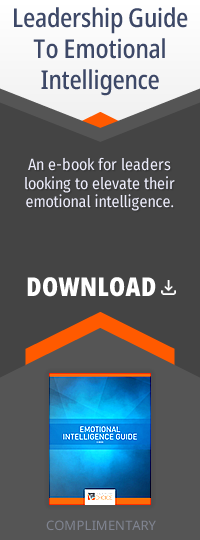
Why High Performers Have a Mindset of Constant Growth
High performers are distinguished by their exceptional drive, commitment, and ability to consistently achieve remarkable results. What sets them apart is not just their talent but their relentless pursuit of excellence. At the core of this pursuit is a growth mindset—a belief that abilities and intelligence can be developed through dedication and hard work.
Understanding the significance of a growth mindset is crucial for grasping why high performers continually strive for personal and professional development. This mindset fuels their desire to enhance skills, expand capabilities, and reach new heights in their careers. In this article, we’ll delve into the key elements that drive high performers towards constant growth, providing insights into their mindset and the characteristics they embody to achieve sustained success.
The Growth Mindset and Its Impact

Explaining the Growth Mindset and Its Origins:
The growth mindset, a term coined by psychologist Carol Dweck, refers to the belief that abilities and intelligence can be developed through effort, learning, and perseverance. Dweck’s research contrasted this with a fixed mindset, where individuals believe their talents and intelligence are static traits. The growth mindset is rooted in the understanding that the brain can change and grow, known as neuroplasticity. This perspective encourages individuals to embrace challenges, persist despite setbacks, and view effort as a path to mastery.
Adopting the Growth Mindset:
High performers are distinguished by their unwavering commitment to self-improvement. They adopt a growth mindset by:
- Embracing Challenges: High performers see challenges as opportunities to learn and grow rather than threats. This approach allows them to tackle difficult tasks with enthusiasm and resilience.
- Learning from Criticism: They view feedback as a valuable improvement tool rather than a personal attack. This openness to constructive criticism helps them refine their skills and strategies continuously.
- Persistence: High performers understand that success is only achieved after a period of time. They persist through obstacles, maintaining their focus and determination even when faced with setbacks.
- Effort Over Talent: High Performers prioritize hard work and effort over innate talent. High performers believe their abilities can be developed through dedication and continuous practice.
Examples of High Performers with a Growth Mindset:
- Elon Musk: The CEO of SpaceX and Tesla is known for his relentless pursuit of knowledge and innovation. Musk continuously pushes the boundaries of technology, learning from failures and using them as stepping stones for future success. His willingness to take risks and learn from them exemplifies the growth mindset.
- Oprah Winfrey: Starting from humble beginnings, Oprah Winfrey’s career has been marked by her continuous effort to grow and improve. She has embraced challenges, learned from criticism, and turned setbacks into opportunities. Her success in various fields, from media to philanthropy, highlights her commitment to personal and professional development.
- Serena Williams: One of the greatest tennis players of all time, Serena Williams demonstrates a growth mindset through her dedication to training and improvement. Despite numerous injuries and setbacks, she has continuously worked to enhance her skills and performance. Her resilience and effort underscore her belief in the power of growth.
High performers leverage their growth mindset to differentiate themselves from others. They see potential where others see limits, and they approach their careers with a focus on continuous learning and development. This mindset drives their success and inspires those around them to adopt similar attitudes toward growth and achievement.
Continuous Skill Development as a Trait

The Importance of Continuous Learning and Skill Development for High Performers:
For high performers, the journey of growth never ceases. Continuous learning and skill development are critical to maintaining their competitive edge and achieving long-term success. High performers consistently stay ahead of industry trends, adapt to new challenges, and drive innovation by consistently enhancing their abilities. This commitment to lifelong learning ensures they remain valuable assets to their organizations and can effectively navigate the complexities of the modern workplace.
Methods High Performers Use to Enhance Their Skills:
- Training Programs: High performers often participate in specialized training programs that provide in-depth knowledge and practical skills relevant to their roles. These programs, offered by employers or external organizations, cover a wide range of topics from technical skills to leadership development.
- Workshops: Workshops offer an interactive learning experience, allowing high performers to gain hands-on skills and network with peers. These sessions are typically focused on specific skills or areas of knowledge, providing targeted learning opportunities.
- Online Courses: The rise of digital learning platforms has made it easier than ever for high performers to access quality education. Online courses from institutions like Coursera, Udemy, and LinkedIn Learning enable them to learn at their own pace and from anywhere in the world. These courses cover diverse subjects, from coding and data analysis to project management and communication skills.
- Mentorship: High performers seek guidance from mentors who can provide valuable insights and advice. Mentorship relationships help them gain new perspectives, learn from the experiences of others, and receive personalized feedback on their development.
- Reading and Research: Staying informed about industry trends and best practices is crucial for high performers. They regularly read books, articles, and research papers to expand their knowledge and keep up-to-date with the latest developments in their fields.
- Networking: Engaging with a network of professionals allows high performers to learn from the experiences of others and gain access to new opportunities. Networking events, conferences, and professional associations provide platforms for exchanging ideas and learning from peers.
Stories of High Performers Who Have Successfully Expanded Their Capabilities Through Continuous Learning:
- Satya Nadella: As CEO of Microsoft, Satya Nadella has emphasized the importance of a learning culture within the organization. Nadella is a proponent of continuous learning, regularly reading and seeking knowledge from diverse sources. His leadership has altered Microsoft into a more innovative and adaptive company.
- Sheryl Sandberg: Former COO of Facebook, Sheryl Sandberg, has consistently sought to enhance her leadership and management skills. She has participated in various training programs and workshops throughout her career. Sandberg’s commitment to learning is evident in her ability to lead effectively and adapt to the rapidly changing tech industry.
- Tim Cook: Apple’s CEO, Tim Cook, is known for his meticulous learning and skill development approach. Cook has attended numerous executive education programs and is a voracious reader. His dedication to continuous learning has helped him steer Apple to new heights and maintain its position as a global leader in innovation.
These stories illustrate how high performers prioritize continuous skill enhancement to achieve success. By investing in their development, they advance their careers and contribute to their organization’s growth and success.
Climbing the Corporate Ladder

The Link Between a Growth Mindset and Career Advancement:
A growth mindset is pivotal for career advancement. High performers understand that their current abilities do not limit their professional development but are a continuous learning and improvement process. This mindset drives them to seek new challenges, embrace feedback, and persist through obstacles. High performers consistently push themselves beyond their comfort zones by believing that they can always improve, which is essential for climbing the corporate ladder.
Strategies High Performers Use to Ascend the Corporate Hierarchy:
- Seeking Mentorship:
- Mentorship is a powerful tool for career growth. High performers actively seek out mentors who can provide guidance, share experiences, and offer insights into navigating the corporate landscape. Mentors help them avoid common pitfalls, make informed decisions, and develop the skills needed for leadership roles.
- Networking:
- Building a robust professional network is crucial for career advancement. High performers attend industry events, join professional organizations, and connect with colleagues within and outside their companies. Networking provides access to new opportunities, allows them to learn from the experiences of others, and helps them stay informed about industry trends and best practices.
- Taking on Challenging Projects:
- High performers do not shy away from complex assignments. Instead, they seek out challenging projects that push their limits and provide growth opportunities. By tackling complex tasks, they demonstrate their capabilities, gain valuable experience, and showcase their readiness for higher responsibilities.
- Continuous Learning and Development:
- High performers are committed to lifelong learning. They continuously upgrade their skills by using training programs, workshops, online courses, and other educational resources. Staying current with industry developments and acquiring new competencies makes them more versatile and valuable to their organizations.
- Setting Clear Goals:
- Goal setting is a critical component of career advancement. High performers set clear, achievable goals for themselves and develop action plans to reach them. These goals provide direction and motivation, helping them stay focused on their career progression.
- Demonstrating Leadership:
- Even before reaching formal leadership positions, high performers exhibit leadership qualities. They take initiative, collaborate effectively with team members, and contribute to the organization’s strategic objectives. Demonstrating leadership potential is essential for being considered for promotions and higher-level roles.
Examples of High Performers Who Have Rapidly Progressed in Their Careers Due to Their Growth-Oriented Approach:
- Mary Barra:
- Mary Barra started her career at General Motors as a co-op student in 1980. Through her commitment to continuous learning and her willingness to take on challenging roles, she rose through the ranks to become the first female CEO of a major global automaker. Barra’s growth mindset and her dedication to innovation and excellence have been key drivers of her rapid career advancement.
- Indra Nooyi:
- Indra Nooyi’s career trajectory at PepsiCo is a testament to the power of a growth mindset. Starting as a senior vice president of corporate strategy, Nooyi’s strategic vision and relentless pursuit of growth opportunities led her to become the CEO. Her ability to adapt, learn, and lead through change propelled her to the top of the corporate hierarchy.
- Sundar Pichai:
- Sundar Pichai’s rise at Google is another example of how a growth-oriented approach can lead to significant career advancement. Pichai joined Google in 2004 and quickly became known for his ability to manage and grow specific products like Chrome and Android. His focus on innovation, learning, and leadership skills ultimately led to his appointment as CEO of Google’s parent company, Alphabet Inc.
These high performers exemplify how adopting a growth mindset and employing strategic approaches to career development can lead to rapid and sustained career advancement.
Top Characteristics to Adopt for Growth

Adopting these characteristics can significantly enhance your ability to grow and succeed:
1. Curiosity
High performers have an insatiable curiosity. They always seek new knowledge and experiences, which fuels their continuous growth. Curiosity drives them to ask questions, explore new ideas, and stay informed about the latest developments in their fields. This characteristic keeps them engaged and motivated, leading to innovative thinking and problem-solving.
2. Resilience
Resilience is the ability to bounce back from setbacks and keep moving forward. High performers embrace challenges and view failures as opportunities to learn and improve. They understand that resilience is essential for overcoming obstacles and achieving long-term success. Maintaining a positive attitude and staying focused on their goals, they can navigate difficult situations and emerge stronger.
3. Proactivity
Proactivity involves taking initiative and looking for opportunities to grow. High performers do not wait for opportunities to come to them; they actively seek them out. This proactive approach helps them stay ahead of the curve and continuously improve their skills. They can effectively manage their careers and drive their success by anticipating challenges and taking preemptive action.
4. Adaptability
In a rapidly changing world, adaptability is crucial. High performers are flexible and open to change, which allows them to thrive in dynamic environments. They can quickly adjust to new situations, learn new skills, and pivot their strategies. This adaptability ensures that they remain relevant and capable of handling any challenges that come their way.
5. Commitment
Commitment to continuous improvement and self-development is a hallmark of high performers. They stay dedicated to their growth, consistently seeking ways to enhance their abilities and knowledge. This commitment involves setting aside time for learning, investing in personal development, and staying focused on their long-term goals. Their unwavering dedication drives their sustained success.
6. Goal-Oriented
Setting clear, achievable goals is essential for growth. High performers are goal-oriented, meaning they have a clear vision of their goals and develop action plans to reach them. They can maintain focus and motivation by breaking down their objectives into manageable steps. Regularly reviewing and adjusting their goals ensures they stay on track and continue progressing.
7. Reflectiveness
Regular self-assessment and reflection are important to continuous growth. High performers frequently assess their progress, identify areas for improvement, and adjust their strategies accordingly. This reflectiveness helps them learn from their experiences, avoid repeating mistakes, and refine their approach. They can make informed decisions and maintain their growth trajectory by staying mindful of their development.
Embrace the Growth Mindset
Adopting a growth mindset and embodying the characteristics of high performers can significantly impact your personal and professional development. Embrace continuous learning, stay resilient, and proactively seek opportunities to grow. By doing so, you’ll be well on your way to climbing the corporate ladder and achieving sustained success.
« More on High Performers and How They Leverage Grit to be Successful.
About the Author:
Pat Bosworth
Founder and CEO Patrick effectively coaches leaders at all levels and across a number of industries with a pragmatic, consultative approach. Previously, he was vice president with Right Management and held other senior OD and development positions in manufacturing and the professional services Industries.
He holds an M.S. in Industrial/Organizational Psychology from Lamar University.




